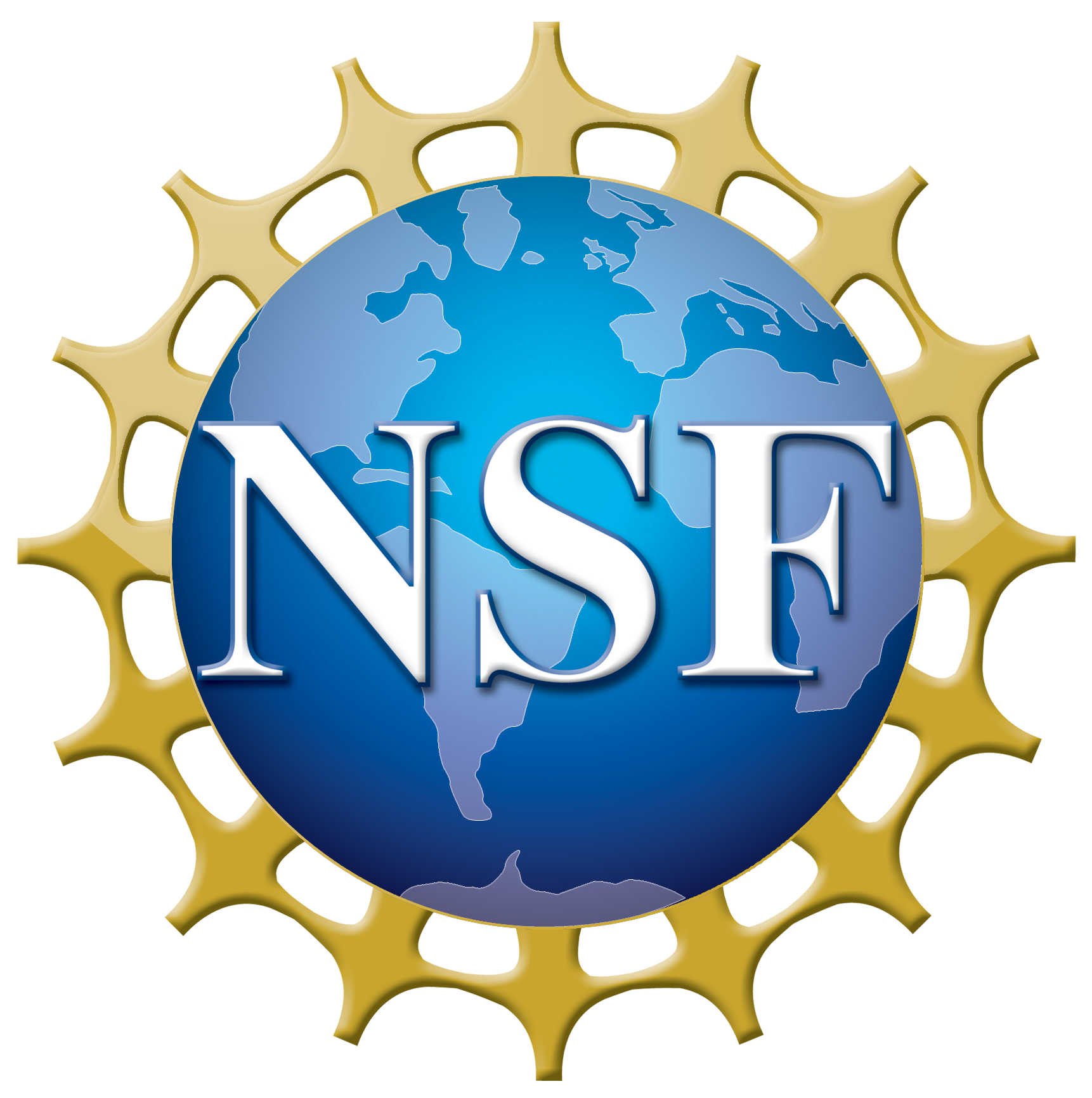Artificial Intelligence
Mikael Kuusela is interested in model agnostic data-driven searches: classical searches of new physics are optimized by assuming a model for the new signal. These searches have great sensitivity when an actual signal matches our prior expectations, but might be very insensitive for unanticipated signals. Model-agnostic searches aim to fix this by making fewer assumptions about the signal distribution, thereby providing sensitivity for unexpected new physics signals that might otherwise be missed in the analysis.
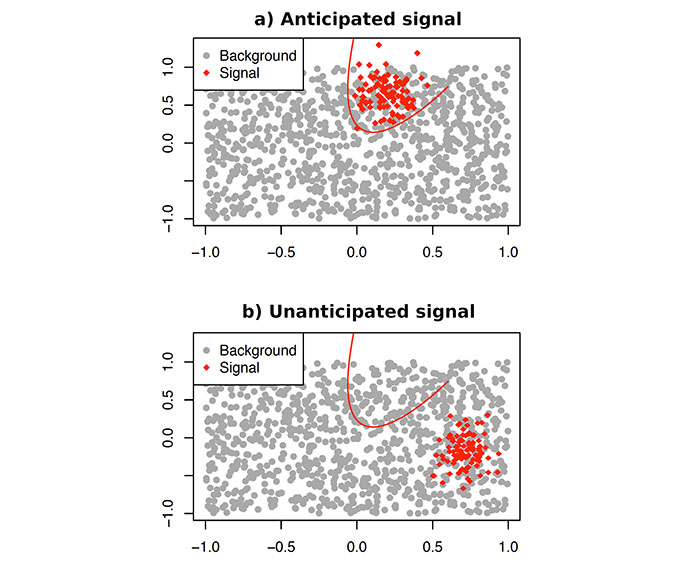
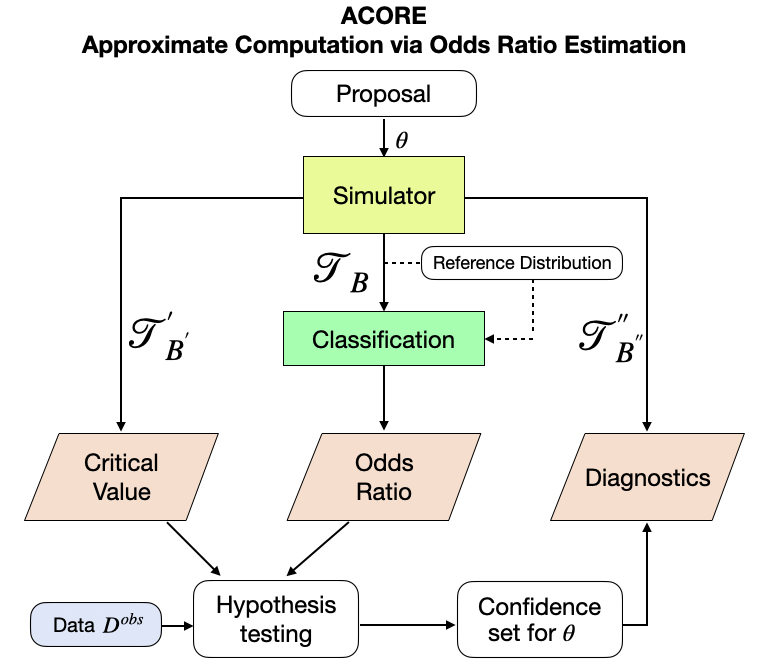
Ann B. Lee's research work toward designing powerful and computationally efficient statistical procedures that unify classical statistics with modern machine learning and AI (e.g., deep generative models and neural network classifiers) for hypothesis testing and parameter estimation in settings where the likelihood is intractable but one can forward-simulate observable data, and for calibration and validation of emulator models fit to high-fidelity simulators. Recent work includes ACORE (Approximate Computation via Odds Ratio Estimation) where we leverage AI tools for constructing hypothesis tests, confidence sets and validation tools with good frequentist properties in a simulator-based inference setting.
Chad Schafer is interested in fundamental inference problems in cosmology, including estimation of key physical constants in the face of complex models. Challenges in this area include learning the most important features in complex modern astronomical data sets. The figure shows an example where high dimensional, noisy light curves are being compressed to smooth summaries, in hopes of preserving important scientific information.
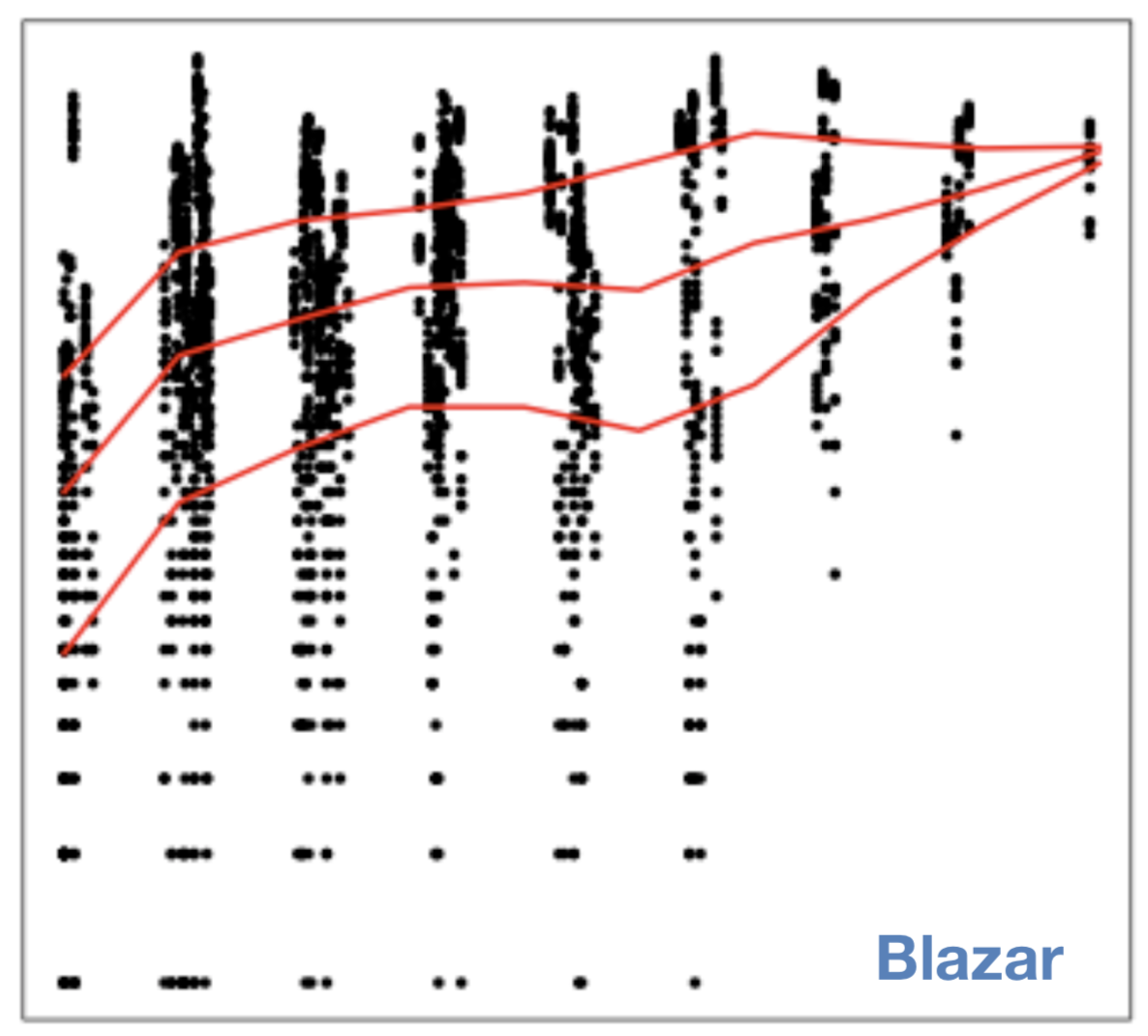
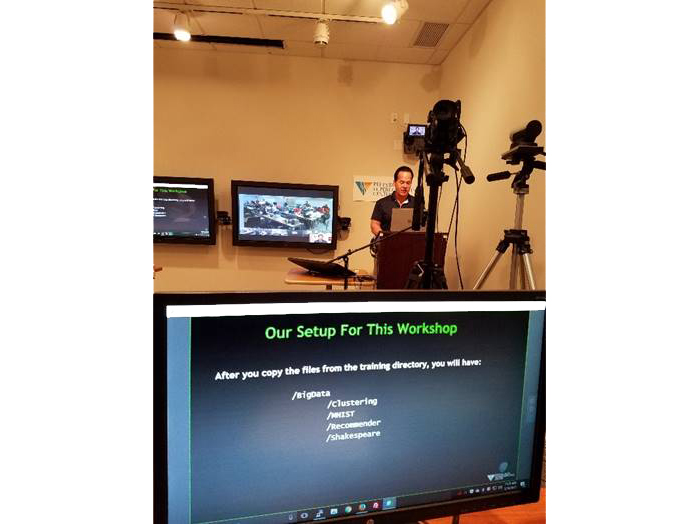
John Urbanic's dual-appointment between the Physics Department and the Pittsburgh Supercomputing Center (PSC) serves as a bridge to the high-performance computing resources at the core of machine learning. This assures the institute, and its members, will have access to world-class computing capabilities, as well as expertise in the optimization and scaling of new algorithms. He was also instrumental in developing the Wide Area Classroom, a remote training platform that has been used to deliver in-class, advanced training to over 15,000 students. It was developed to enhance outreach at the PSC, and will be a crucial tool in the outreach efforts of the new institute, making many activities accessible to partners regardless of location and without the compromises of "zooming".
